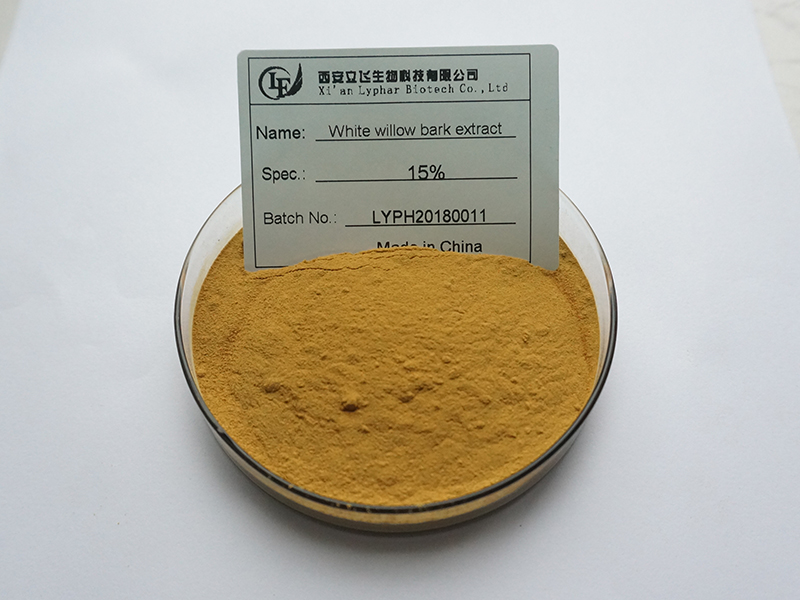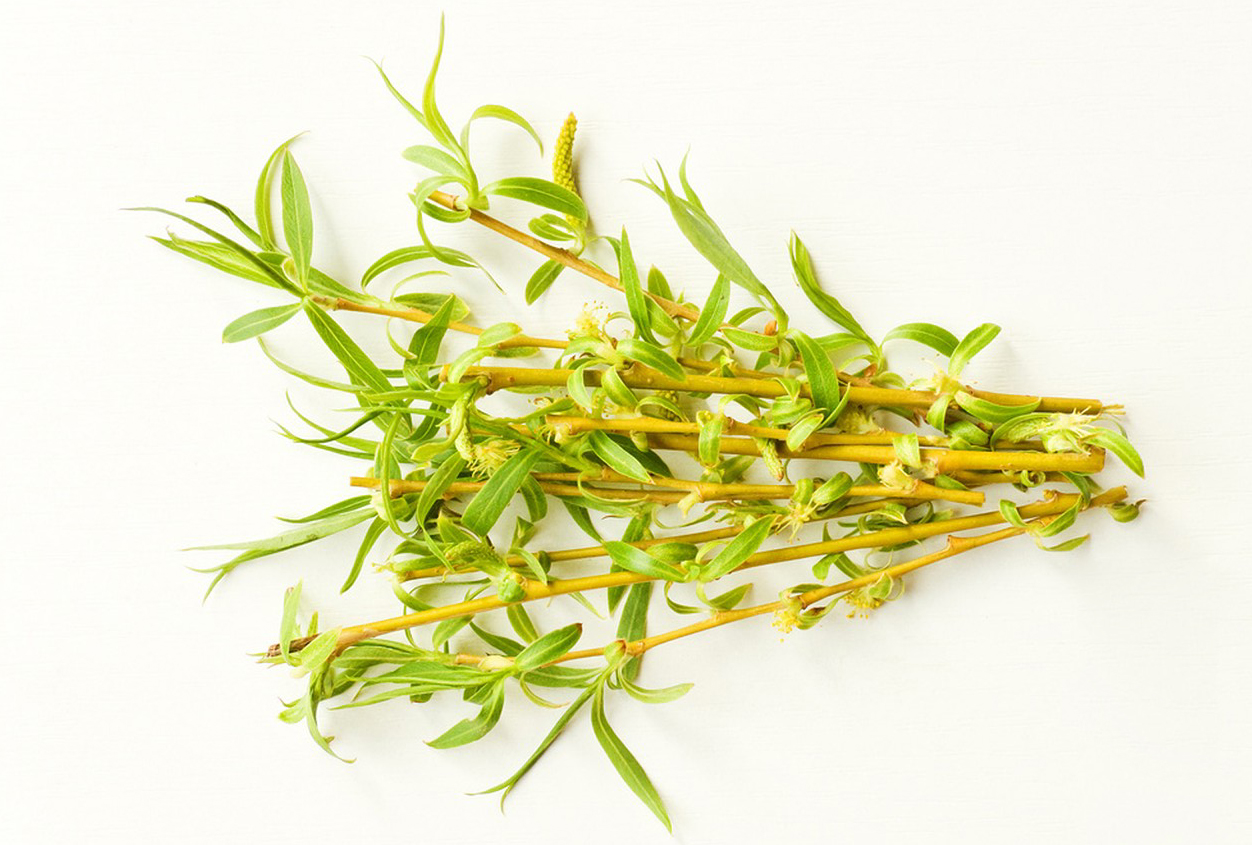White willow extract, derived from the bark of the white willow tree (Salix alba), has been used traditionally for its medicinal properties, primarily due to its active ingredient salicin, which is chemically similar to aspirin (acetylsalicylic acid).
Applications of White Willow Extract
1.Pain Relief: White willow extract is often used to alleviate pain, particularly joint pain and lower back pain. It is believed to work similarly to aspirin by reducing inflammation and inhibiting prostaglandins, which are substances that contribute to pain and inflammation.
2.Anti-inflammatory Properties: Due to its salicin content, white willow extract has anti-inflammatory effects. It may be helpful in conditions where inflammation plays a role, such as arthritis and other inflammatory joint conditions.
3.Fever Reduction: Historically, white willow bark was used to reduce fever, although this use has diminished with the advent of safer and more effective modern fever reducers.
4.Headache Relief: Similar to its role in pain relief, white willow extract may help alleviate headaches, including migraines, by reducing inflammation and pain.
5.Skin Care: Some topical formulations containing white willow extract are used in skincare products for their anti-inflammatory and soothing properties. They may help with conditions like acne and mild skin irritations.

6.Heart Health: There is some evidence suggesting that regular use of white willow extract may have cardiovascular benefits similar to low-dose aspirin, such as reducing the risk of heart attacks and strokes, although more research is needed in this area.
7.Digestive Aid: White willow extract has been used traditionally to relieve stomach cramps and gastrointestinal discomfort, although its use in this area is less common today.
It’s important to note that while white willow extract can be beneficial for some people, it may not be suitable for everyone. People who are allergic to aspirin or who are taking blood-thinning medications should avoid white willow extract unless under medical supervision. As with any herbal supplement, it’s advisable to consult with a healthcare professional before starting use, especially if you have any underlying health conditions or are taking other medications.
The negative impact of the White Willow Extract
White willow extract, derived from the bark of the white willow tree, contains salicin, which is chemically similar to aspirin. While it has some potential health benefits, such as pain relief and anti-inflammatory properties, there are also potential negative impacts associated with its use:
1.Gastrointestinal Issues: Like aspirin, white willow extract can irritate the stomach lining and cause gastrointestinal issues such as stomach pain, nausea, and indigestion. This is particularly true if taken in high doses or over a prolonged period.
2.Allergic Reactions: Some individuals may be allergic to salicylates, which are present in white willow extract. Allergic reactions can range from mild symptoms like itching and rash to more severe reactions such as difficulty breathing or swelling of the face and throat.
3.Interaction with Medications: White willow extract, due to its salicin content, can interact with certain medications. It may increase the risk of bleeding when combined with anticoagulants (blood thinners) or affect the efficacy of medications for diabetes or high blood pressure.
4.Reye’s Syndrome Risk: Similar to aspirin, white willow extract should be avoided in children and teenagers recovering from viral infections (like the flu or chickenpox) due to the potential risk of Reye’s syndrome, a rare but serious illness that affects the liver and brain.

5.Pregnancy and Breastfeeding: There is insufficient evidence regarding the safety of white willow extract during pregnancy and breastfeeding. It’s generally recommended to avoid its use during these times to prevent potential harm to the fetus or infant.
6.Kidney Function: In some cases, white willow extract may cause kidney irritation or worsen kidney function, especially in individuals with pre-existing kidney problems.
7.Overuse and Dependency: Regular use of white willow extract can lead to dependency on pain relievers and may mask underlying health issues that require medical attention.
It’s important for individuals considering the use of white willow extract to consult with a healthcare provider, especially if they have pre-existing health conditions or are taking other medications. Healthcare professionals can provide personalized advice and help weigh the potential benefits against the risks based on individual health circumstances.
